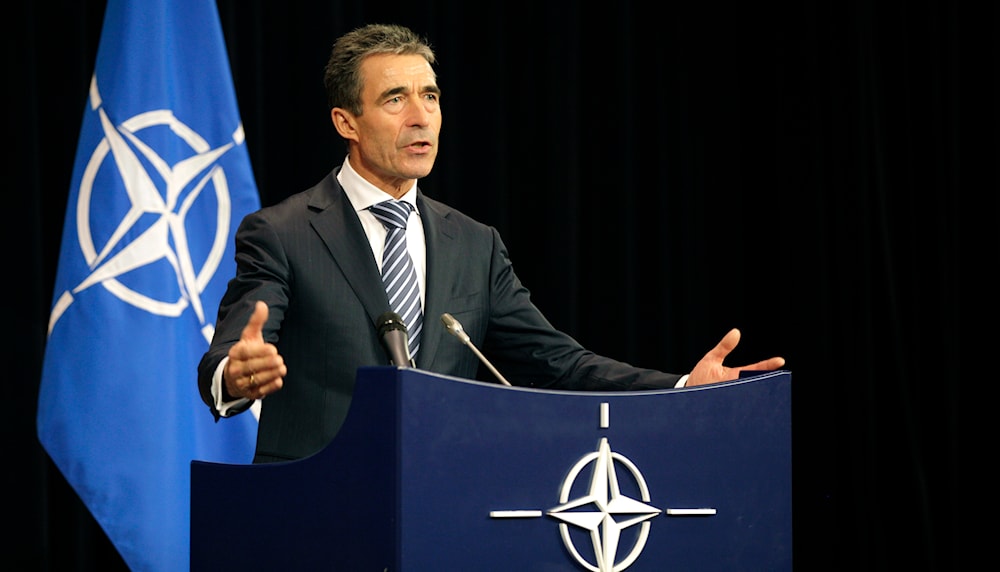Ex-NATO secretary-general slams German chancellor Scholz
Anders Fogh Rasmussen has labeled Olaf Scholz the “chancellor of eternal war” for his decision not to send long-range missiles to Kiev.
-

NATO Secretary General Anders Fogh Rasmussen speaks during a media conference after a meeting of NATO defense ministers at NATO headquarters in Brussels on October 9, 2012. (AP)
Former NATO Secretary General Anders Fogh Rasmussen criticized German Chancellor Olaf Scholz for his cautious stance in supporting Ukraine, arguing that Berlin's reluctance to fully arm Kiev has prolonged the war.
In an interview with German broadcaster N-tv on Sunday, Rasmussen, who led the US-led military bloc from 2009 to 2014 during the Libya invasion, highlighted that the war in Ukraine has exposed a failure by some NATO members, especially Germany, to learn from the lessons of the Cold War.
While acknowledging Berlin as Ukraine’s primary EU supporter, Rasmussen lamented "too much hesitation" in Germany’s decisions on arms deliveries, particularly regarding Leopard tank shipments.
Rasmussen criticized Scholz for not providing Ukraine with long-range missiles, stating, "I really don’t understand why. This hesitation only gives Putin another incentive to continue the war."
He warned that this approach would not lead to peace but instead to a "never-ending war," criticizing Scholz’s aspiration to be seen as a chancellor of peace while cautioning that continued hesitation could perpetuate conflict.
'We must lift all restrictions'
Rasmussen noted that the US had supplied Kiev with long-range ATACMS missiles, describing them as "a very powerful weapon" when combined with F-16 fighter jets expected later this year.
"We must lift all restrictions on the delivery of weapons—both in terms of their type and their use," he asserted.
Scholz has defended his reluctance to send Taurus missiles, citing concerns about escalating the conflict and the potential direct involvement of German troops if Kiev required assistance with their use.
Ukraine has received long-range support from several Western allies, including the US, France, and the UK, with recent approvals for strikes deep into Russian territory.
Last month, Ukraine launched an ATACMS strike on Russia’s Crimea, resulting in civilian casualties. Kremlin spokesperson Dmitry Peskov condemned the attack as "absolutely barbaric," urging Western governments to explain their actions to their citizens.

 2 Min Read
2 Min Read









